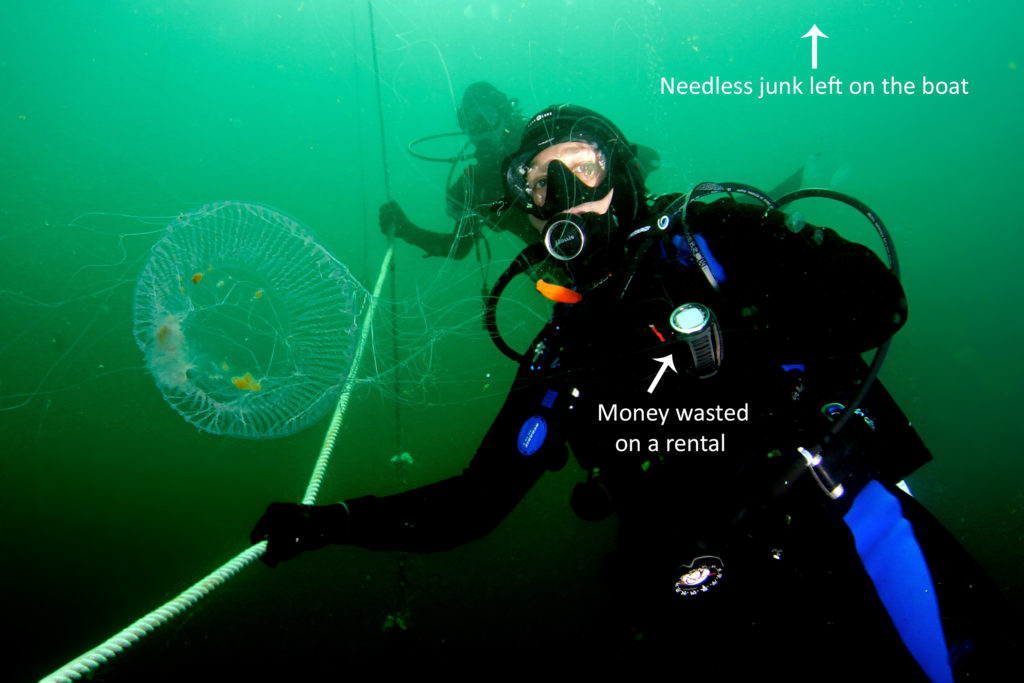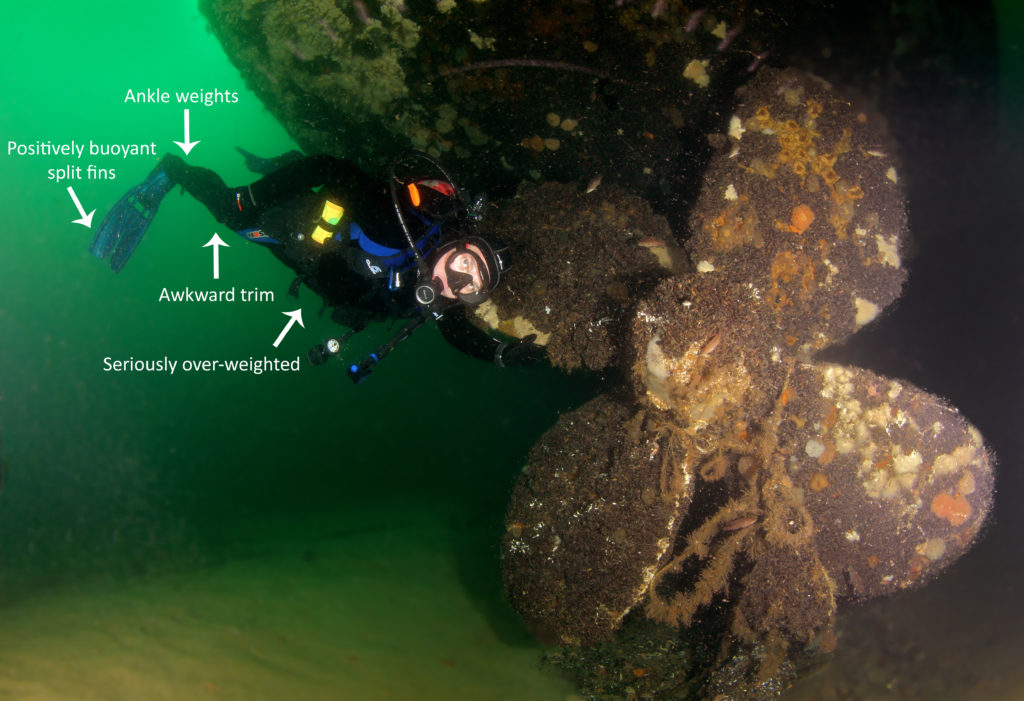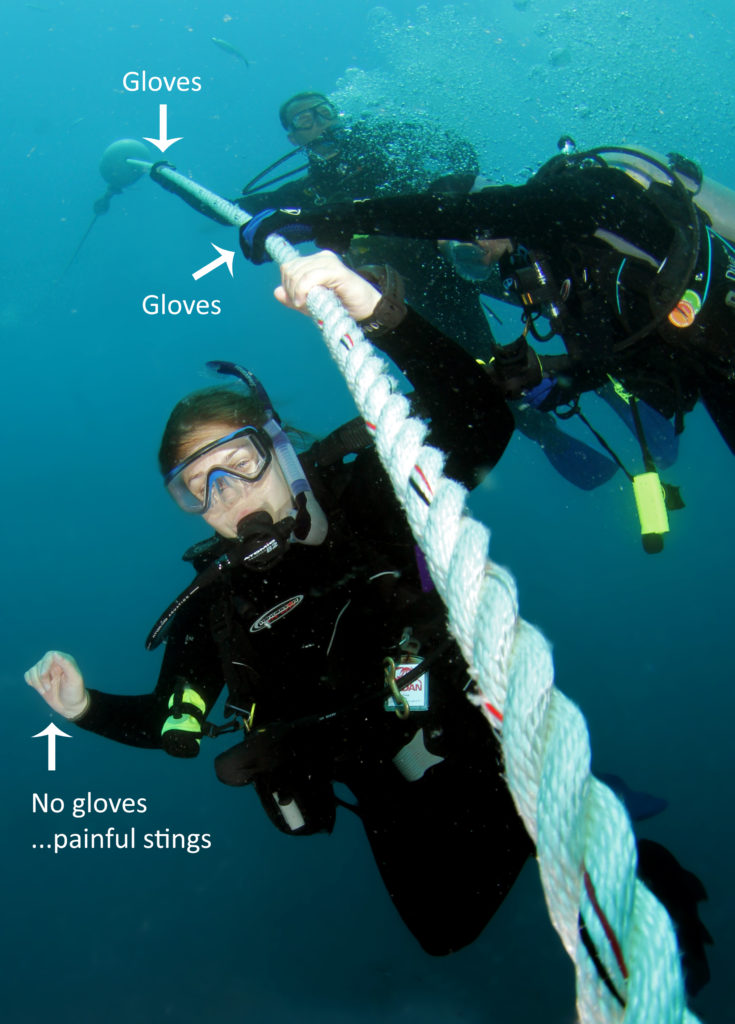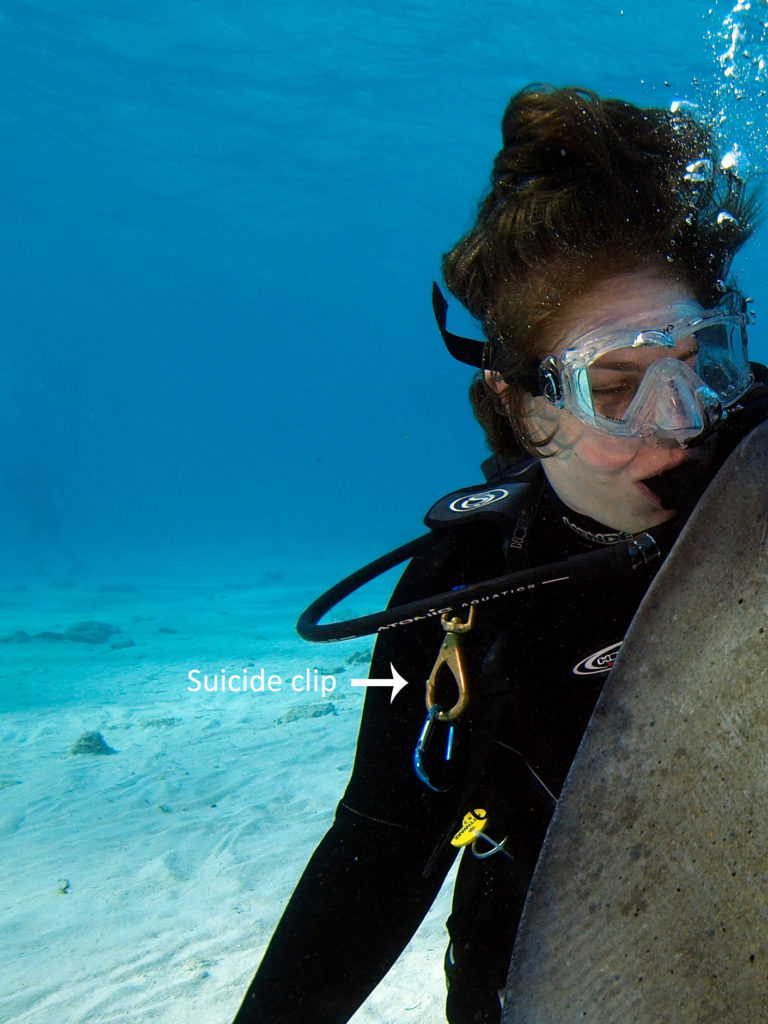As a wide-eyed newbie diver, I quickly became addicted to diving. While I definitely had a lot of fun, there are few things I wish I’d known. Here are some top tips for any newbie diver who doesn’t want to struggle like many of us do at the beginning of our diving careers.
Invest in the essentials first
I’m a packrat, so it’s no surprise that I bought tons of “must-have” toys and random gear early on, like the coolest new slate, a dry snorkel and the warmest 7 mm wetsuit (when I hadn’t been cold-water diving since my certification). I’d have done better to spend all that money on a computer. Instead, I rented one for every dive, throwing away lots of money over the years. Buying dive equipment is part of the fun, but buy the essentials first and don’t get carried away by all the shiny junk.

Don’t be lazy
I started off with floaty legs and positively buoyant split fins. Instead of focusing on controlling my feet or investing in new fins, I bought ankle weights for an immediate fix. Years later, I still suffered with the ankle weights as a crutch. Bad habits develop easily, but learning properly takes time.
Master buoyancy
I remember when I “got” buoyancy. With the fast current in Cozumel coupled with newly-found control, I whooshed around underwater like a superhero. I thought I knew it all. I won’t tell you how long it was before I finally realized I was seriously over-weighted with awkward trim. You’ll struggle far less by mastering buoyancy in a class focused on this essential skill.

Don’t let others set up or adjust your gear
Twice as a newbie diver, I jumped into the water with my air turned off. <Gulp> I had checked my air, but then someone else had fiddled with my tank. The crew has occasionally roughed up my equipment as well. Having others cater to you is nice, but you’ll be more conscientious and gentler with your own gear than a stranger — even a handsomely-tipped stranger.
Observe other divers
You can learn by just looking around. Once on a dive in a new area, others in the group donned gloves. I didn’t notice until my hands slid into the stinging cells embedded in the descent line.
Look at the divers around you. It’s not only a chance to learn something new, but also to leverage the experience of others.

Don’t blindly follow your dive elders
A 20-year dive veteran zip-tied a clip to my BCD because I wasn’t streamlined. He was right about the streamlining, but he was wrong about the type of clip. Two years later when someone else made a crack about my “suicide clip,” I realized I hadn’t even doubted the veteran because of his vast experience. A suicide clip is any type of clip that can accidentally attach to an object. They’re an entanglement hazard, and have caused a number of deaths. Because experience doesn’t always equal expertise, figure out if someone is imparting sound advice before you follow it.

Don’t brush off dive planning
When others are racing into the water and an experienced buddy (or instabuddy) blows off the dive planning, it’s easy to follow suit as a newbie diver. But it’s then easy to encounter problems because you didn’t plan the dive. Which is why I freaked out when my instabuddy decided to continue a dive with only 400 psi of air. Insist on fully planning the dive. The time spent before the dive is critical to your safety.

